My review of Gillian Tett’s book has appeared in the Times Literary Supplement.

This is a list of my books.

My review of Gillian Tett’s book has appeared in the Times Literary Supplement.

This review, of Layard and Clark’s Thrive and William Davis’s The Happiness Industry, has appeared in the Times Literary Supplement.
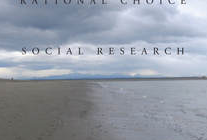
The book is now out (Carlos Cañon, Guido Friebel and I have a chapter in it which you can download here). The book’s web page is here.

Picture credit: Boardroom battles….. The Apprentice. Photograph: BBC/PA Photo, from the review in The Guardian.
December 2013 update: Martin Wolf has chosen The War of the Sexes as one of his books of the year in the Financial Times:
“With characteristic brilliance, Seabright uses biology, sociology, anthropology and economics to explain the war of the sexes. Men and women must co-operate to bring their offspring to maturity and conflict is inherent. Yet today opportunities for more successful and equal relations between the sexes are greater than ever before.”
Other reviews:
In chronological order of appearance:
John Whitfield in Nature.
A favorable but somewhat surrealistically inaccurate review by Roger Lewis in the Daily Mail.
Jonathan Rée in The Guardian
Fran Hawthorne in The New York Journal of Books
Camilla Power in Times Higher Education
Alexander Delaigue in Liberation (in French)
Anna Cristina Pertierra in Inside Story
Joshi Herrmann in The London Evening Standard
Michele Pridmore-Brown in the Times Literary Supplement, available here (pdf here)
Elaine Graham-Leigh in Counterfire
Some reactions in the blogosphere:
Sander Van Der Linden in LSE Review of Books
My post at the Huffington Post blog
Interviews, other coverage:
The Financial Security Project at Boston College
BBC Nightwaves, the interview runs from the 23 minutes point and lasts 11 minutes
VoxEU interview
The Moncrieff Show on Newstalk Radio Ireland, section 4, around 9 minutes in

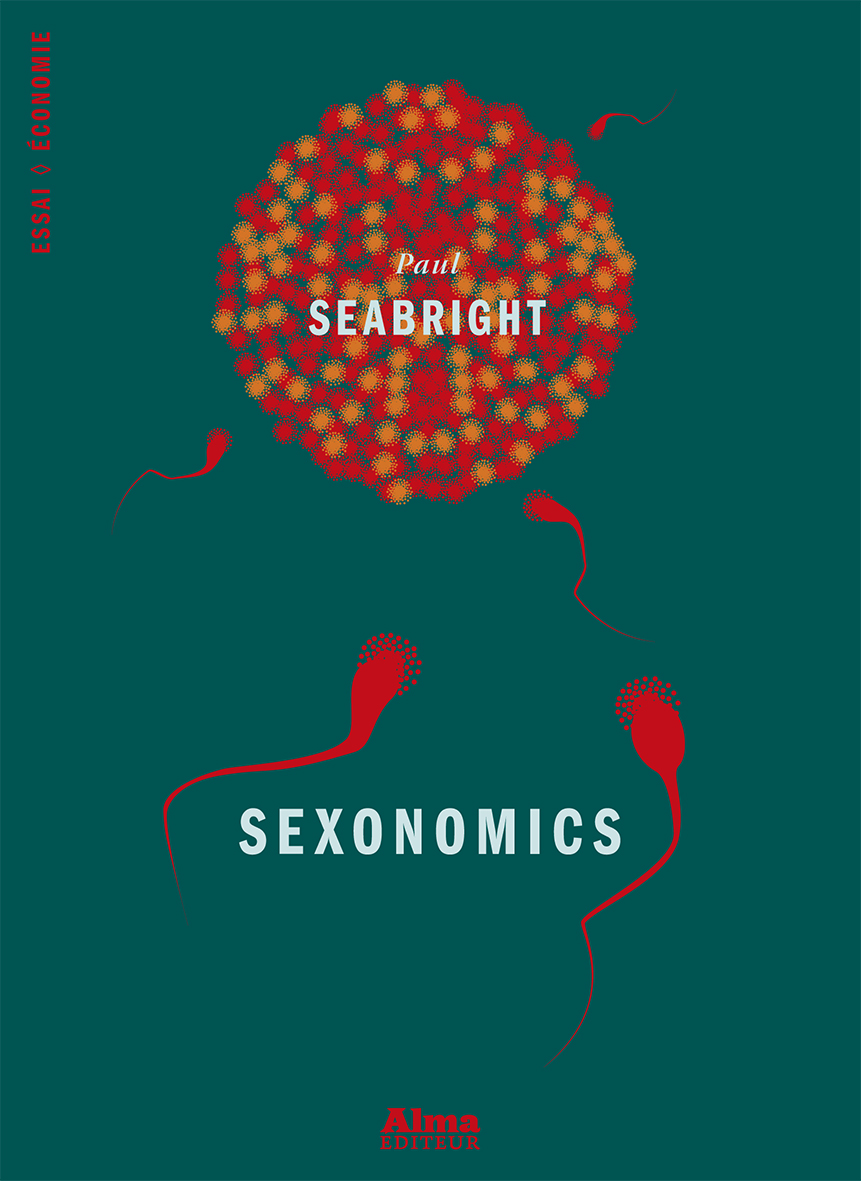 Sexonomics est le titre de la traduction française de The War of the Sexes: How Conflict and Cooperation Have Shaped Men and Women from Prehistory to the Present (Princeton UP 2012), qui a été publiée par Editions Alma le 4 octobre 2012.
Sexonomics est le titre de la traduction française de The War of the Sexes: How Conflict and Cooperation Have Shaped Men and Women from Prehistory to the Present (Princeton UP 2012), qui a été publiée par Editions Alma le 4 octobre 2012.
Il y a eu une conférence de lancement le 16 octobre à Sciences Po Paris.
Des critiques dans la presse française on apparu ici:
Livres Hebdo, 29/09/2012
Le Monde Economie: Les LIvres de la Rentrée, 22/10/2012
Par rapport à l’édition anglais, Sexonomics a une bibliographie réduite, mais la bibliographie complète sera disponible ici.
Voici aussi quelques documents cités dans la bibliographie et difficilement disponibles ailleurs:
A.T. Kearney: Africa Mobile Observatory Full report 2011
A.T. Kearney Asia Pacific Mobile Observatory Full report 2011
Le titre Sexonomics a été utilisé par un livre anglais et un site web du même nom, tenu par le Dr. Adalbert Lallier, que vous pouvez trouver ici.
Ce titre est le sujet d’une marque déposée aux USA et au Canada. Même si le propriétaire ne détient pas de marque en France je reconnais volontiers la priorité de son utilisation du titre, et je vous recommande la visite de son site pour apprécier son approche originale et particulière.

This book of essays edited by the excellent Diane Coyle was published on 15th September 2012; the Amazon page is here. Diane also has a column posted on Vox.
I have a very short note in it but many of the other entries are fuller and more rewarding to read.

Les Editions Alma publieront en septembre 2012 une traduction par Mathieu Bathol de The War of the Sexes. Détails ici. Entre temps je vous recommande vivement leur offre de publications.

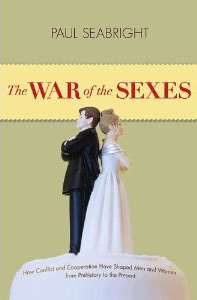 Paul Seabright, The War of the Sexes: How Conflict and Cooperation have Shaped Men and Women Prehistory to the Present, Princeton University Press, published May 2012 (eBook April 2012)
Paul Seabright, The War of the Sexes: How Conflict and Cooperation have Shaped Men and Women Prehistory to the Present, Princeton University Press, published May 2012 (eBook April 2012)
As countless love songs, movies, and self-help books attest, men and women have long sought different things. The result? Seemingly inevitable conflict. Yet we belong to the most cooperative species on the planet. Isn’t there a way we can use this capacity to achieve greater harmony and equality between the sexes? In The War of the Sexes, Paul Seabright argues that there is–but first we must understand how the tension between conflict and cooperation developed in our remote evolutionary past, how it shaped the modern world, and how it still holds us back, both at home and at work.
Drawing on biology, sociology, anthropology, and economics, Seabright shows that conflict between the sexes is, paradoxically, the product of cooperation. The evolutionary niche–the long dependent childhood–carved out by our ancestors requires the highest level of cooperative talent. But it also gives couples more to fight about. Men and women became experts at influencing one another to achieve their cooperative ends, but also became trapped in strategies of manipulation and deception in pursuit of sex and partnership. In early societies, economic conditions moved the balance of power in favor of men, as they cornered scarce resources for use in the sexual bargain. Today, conditions have changed beyond recognition, yet inequalities between men and women persist, as the brains, talents, and preferences we inherited from our ancestors struggle to deal with the unpredictable forces unleashed by the modern information economy.
Men and women today have an unprecedented opportunity to achieve equal power and respect. But we need to understand the mixed inheritance of conflict and cooperation left to us by our primate ancestors if we are finally to escape their legacy.
Visit the book’s homepage at Princeton University Press.
Endorsements:
“From the mating habits of praying mantises to the battlefield of corporate boardrooms, Paul Seabright takes us on a fantastic journey across time and disciplines to uncover why–and how–men and women have learned to work together, and what forces still keep them apart in modern society.”–Linda Babcock, coauthor of Women Don’t Ask: The High Cost of Avoiding Negotiation–and Positive Strategies for Change
“The War of the Sexes is a delight to read. Paul Seabright launches a charm offensive on those who would prefer not to think that gender differences have any biological basis, and an intellectual offensive on those who think that these differences are large and intractable.”–Terri Apter, author of Working Women Don’t Have Wives
“Come on a journey from the Pleistocene to the present–a fascinating trip that uses the economic causes and consequences of our reproductive choices to explain relations between men and women through the ages. I recommend this book to anyone interested in the battle of the sexes (which is certainly everyone I know!—-it’s a great read.”–Anne C. Case, Princeton University
Translation rights: Held by Princeton University Press. For all enquiries please contact kwilliams@pupress.co.uk
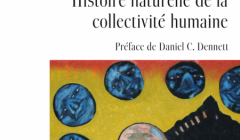
La Société des Inconnus, Paul Seabright, 2011. Editions Markus Haller.
La théorie de l’évolution suggère que nous ne sommes pas naturellement disposés à faire confiance à des inconnus, c’est-à-dire à des gens en dehors de notre famille ou de notre clan. Pourtant, aujourd’hui, nous confions notre vie aux pilotes d’avion, notre argent est géré par des personnes que nous ne connaissons pas, nous mangeons au restaurant sans craindre une intoxication et nous cotoyons une foule d’inconnus potentiellement dangereux dans le métro. Comment en sommes-nous arrivés là ?
Paul Seabright décrit les mécanismes psychologiques, sociaux et économiques qui ont transformé, au fil des derniers dix mille ans, nos ancêtres suspicieux, xénophobes et belliqueux en individus qui dépendent d’un réseau institutionnel complexe constitué de personnes inconnues les unes aux autres. Or, ces mêmes mécanismes entraînent aussi des fléaux comme les crises financières, l’exclusion des faibles, la dégradation de l’environnement naturel, ou la prolifération des armes de guerre. Pour parer à ces conséquences fâcheuses de façon intelligente et efficace, il est essentiel de comprendre la fragilité des institutions qui font de nous des hommes modernes.
Sans jargon et à l’aide de beaucoup d’exemples, La société des inconnus intègre la pensée économique au contexte plus large de nos connaissances en biologie, anthropologie, psychologie et histoire, et propose une analyse lucide du fonctionnement de la société. Érudit et pertinent, cet ouvrage nous fournit des clés pour une meilleure compréhension des défis sociaux majeurs auxquels nous devrons faire face dans les années à venir.
Personne ne peut tourner les pages de ce livre sans découvrir à plusieurs reprises des idées à la fois inattendues et saisissantes que l’on voudrait poursuivre. Robert M. Solow, lauréat du prix Nobel d’économie
Dans la presse : éconoclaste (concernant la 1e éd. anglaise) Books Le Monde Les Echos Le Temps France Culture “Du grain à moudre” Radio Canada “On aura tout lu” AGEFI Le Matin Dimanche Alternatives Économiques Sciences Humaines France Culture “On n’arrête pas l’éco” Revue d’Etudes Agricoles et Environnementales
Commander : FNAC Decitre amazon.fr chapitre.com alapage.com Place des libraires Payot (Suisse) 1001 libraires

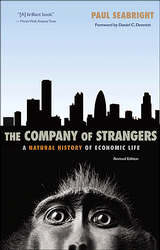 Paul Seabright, The Company of Strangers: A Natural History of Economic Life. Second Edition, Princeton University Press, 2010. Read More →
Paul Seabright, The Company of Strangers: A Natural History of Economic Life. Second Edition, Princeton University Press, 2010. Read More →